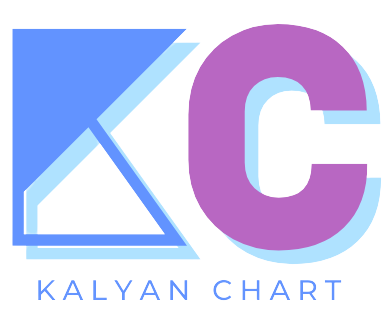The iconic Kalyan Chart has captured the imagination of generations with its tantalizing promise of life-changing winnings. As technology advances, many enthusiasts wonder if Artificial Intelligence (AI) could provide an edge in predicting the winning numbers. However, the relationship between Artificial Intelligence and lottery predictions is complex and multifaceted.
The Randomness Challenge
At its core, the Kalyan Chart relies on the principle of randomness, with numbers drawn in an unpredictable manner. While Artificial Intelligence excels at identifying patterns and making predictions based on large datasets, the inherent randomness of lotteries presents a significant challenge. The numbers drawn are independent events, unaffected by past results or external factors, making pattern recognition less effective.
Machine Learning Limitations
Machine learning algorithms, a subset of AI, are designed to learn from historical data and make predictions based on identified patterns. However, in the case of lotteries like the Kalyan Chart, the lack of consistent patterns or correlations in the drawn numbers poses a limitation. The algorithms may struggle to find meaningful insights, leading to unreliable predictions.
Human Biases and Fallacies
Interestingly, Artificial Intelligence’s potential strength lies in its ability to overcome human biases and fallacies often associated with lottery predictions. Many enthusiasts make poor judgements because they are susceptible to cognitive biases like the gambler’s fallacy and the hot-hand fallacy. AI systems, when properly designed and trained, could potentially avoid such biases and provide a more objective analysis.
Data Analysis and Optimization
While AI may not be able to directly predict winning numbers, it can still play a valuable role in optimizing lottery strategies. Artificial Intelligence algorithms can analyze vast amounts of historical data, identify trends in player behavior, and assist in optimizing marketing, resource allocation, and operational efficiency for lottery operators.
Responsible Gaming
As AI’s capabilities continue to evolve, it is crucial to prioritize responsible gaming practices. Any AI-based lottery prediction tool or application should be clearly presented as entertainment rather than a surefire method for winning. Operators and developers must prioritize player education and implement safeguards to prevent potential harm or unrealistic expectations.
FAQs
Q1: Can AI reliably predict winning Kalyan Chart numbers?
A1: Due to the inherent randomness of lotteries, AI’s ability to accurately and consistently predict winning numbers is limited. The numbers drawn are independent events, making pattern recognition less effective.
Q2: How can Artificial Intelligence overcome human biases in lottery predictions?
A2: Artificial Intelligence systems, when designed and trained properly, can potentially avoid cognitive biases and fallacies that often lead humans to make flawed predictions based on faulty reasoning.
Q3: What are the limitations of machine learning for lottery predictions?
A3: Machine learning algorithms rely on historical data to identify patterns. The lack of consistent patterns or correlations in lottery draws poses a challenge for these algorithms to make reliable predictions.
Q4: How can AI benefit lottery operators?
A4: AI can assist in data analysis, identifying player behavior trends, optimizing marketing strategies, resource allocation, and improving operational efficiency for lottery operators.
Q5: Should AI-based lottery prediction tools be taken seriously?
A5: No, any AI-based lottery prediction tool should be clearly presented as entertainment rather than a surefire method for winning. Responsible gaming practices and managing player expectations are crucial.
Q6: Why is responsible gaming important when discussing AI and lotteries?
A6: As AI’s capabilities evolve, prioritizing responsible gaming practices, player education, and implementing safeguards to prevent potential harm or unrealistic expectations is essential.
Conclusion
While the inherent randomness of lotteries like the Kalyan Chart presents a challenge for AI-based predictions, the technology can still offer valuable insights and optimization opportunities. However, responsible gaming practices, player education, and managing expectations should remain at the forefront as AI continues to shape the gaming industry.

I’m Ganesh, the driving force behind the Kalyan chart, your trusted resource for all things related to the Kalyan chart and the captivating world of Satta Matka. With a deep-rooted passion for data analysis and an unwavering dedication to providing accurate information, I’m here to guide enthusiasts and players through the intricate tapestry of this exciting game.

